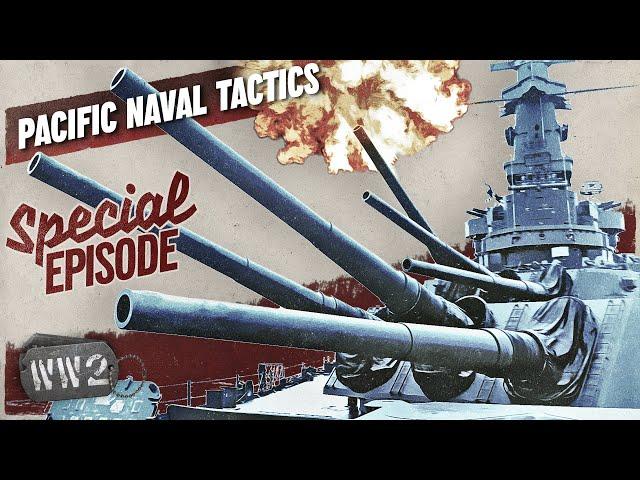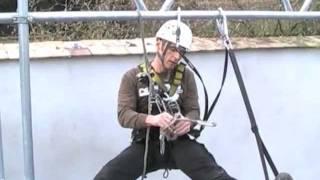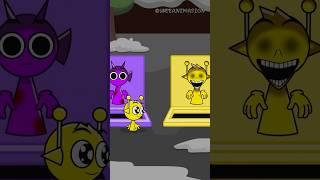
The Great All-Out Battle - Naval Warfare in the Pacific - WW2 Special
Комментарии:

USA USA USA
Ответить
Thank you for your detailed information of the IJN PLANSIN ERLY WWII
Ответить
By 1941, battleships were the Pickelhauben des Zweiten Weltkriegs.

Feedback

"Space Battleship Yamato" Starblazer Kaigun ! Hee, Hee, Hee !
Ответить
Nice summary thank
Ответить
Love this episode 👍
Ответить
Does anyone know if and where I could access primary source documents about these naval wargames, such as the rules they used?
Ответить
And as a result of the poor feeling about torpedo's most the ship that line the bottom of iron Bottum sound is composed of US cruisers
Ответить
I find it incredibly fascinating that in spite of whatever realities surprised both American and Japanese naval tacticians, their understanding and tactics concerning light surface units were pretty much borne out.
The IJN destroyers and cruisers used their long range torpedoes to cause devastating damage and chaos among the USN formations at Guadalcanal and the USN destroyers and escorts almost completely foiled what should have been a lopsided IJN victory at Samar by simply peppering the vastly superior IJN cruisers and battleships at close range, tearing up their superstructures and attriting their command and control personnel - and of course launching and pretending to launch torpedo attacks.

It's hard to remember that Mahon could misstep. . The "Importance of Coaling stations" and the theory of encirclement that sprang from it is still signal to global warfare strategy.
Ответить
in naval warfare, if u can build more ships than ur enemy can replace theirs means u will win. by the end of wwii, 70% of world's warships are US
Ответить
Japanese naval planners didn't realize that you can't rely on surprise as a long-term strategy, because over time, your enemy figures out what you're doing & ceases to be surprise. It's like that old saying they have in Tennessee (I know it's in Texas; probably in Tennessee): fool me once, shame on... shame on you! (you fool me, I can't get fooled again!)
Ответить
Looks like the Japanese had better engagement tactics, while the US had superior strategic vision. Also, Indy, did you dye your hair??
Ответить
Indy,what I can't figure out is why didn't the Japanese battleships and thousands of troops sail with the jap carriers to invade and take over the Hawaiian islands.That theory should have been right among their one huge battle plan.???
Ответить
So, I've only really started binge-watching previous episodes, and I'm always about that efficiency, so I watch my videos at 1.5x or 1.75x, and I just wanted to comment how weird it is to watch a video at regular speed. I know, it's a year later and not on topic, but I chose this opportunity to speak to universe as to not distract anyone or derail the conversation.
Anyway, Indy, you sound weird at regular speed, now. Not your fault; it's mine. I just wanted to point it out.

Notice Japanese naval strategy is carbon copy of Russo-Japanese war, mainly Battle of Tsushima where Japanese Navy annihilated exhausted and disorganized Russian Baltic Fleet
Ответить
You’re a terrific narrator very interesting
Ответить
What's weird (and ironic) is that Midway was a pretty decisive battle in the IJN's eyes but was decided by the use of aircraft carriers and their planes. Not to say they could have done things differently, since if their tactics and strategy circled around surprise clearly that was not the case and they didn't know it.
Ответить
Nadal sobre midway en este trabajo?
Ответить
Yamato is a text book example of military blindness. It had big main guns but no radar (making the big guns ineffective) and very poor antiaircraft measures. I suppose two carriers could have been built using resources sunk into Yamato. In the end, except stroking the bloated egos of some Japanese admirals, Yamato played no role in the war. More carriers, on the other hand, could have made a difference at, say Midway. There are two Japanese films about Yamato: "Yamato" (2005) and "The great war of Archimedes" (2021). The second is the better film, but both are interesting and very well worth the time.
Ответить
I sometimes wish I could forget what I've learnt so Indy's foreshadowings could have an even more epic effect:D
Ответить
My cat had 3 kittens..the 4 cats are named Shokaku, Zuikaku, Kaga, and Akagi..I call them the Kitto Butai...
Ответить
It's funny to me how the core of Japanese battle doctrine is built around the very tactical advantages the US used to beat them....wait spoilers....woops
Ответить
This was phenomenal thank you for this like wow!!
Ответить
I worked at the war college in Newport RI from 2009 - 2010 and then again from 2014 - 2015 and I wish I were as obsessed with the war in the pacific then as I am now :(
Ответить
This episode and the Mahan 'Big Gun' theory explains why Admiral King and the Admiral in charge of Pearl Harbor were caught so by surprise. King also subscribed to the Big Gun theory and figured the Japanese would first attack the Philippines in order to draw out the Pacific fleet and its Battleships. This episode helped me peak into King's mind and why we were caught so much by surprised on Dec. 7th. Thanks for always either teaching me something new or giving me food for thought. Absolutely the best place for in-depth WWII coverage. I'm also enjoying the Between two wars and WWI coverage.
Ответить
I’d love to know how fire control is achieved. Everything is moving. The ship is going back and forth, up and down so the muzzle of the barrel is moving all over the place. The target is moving. So how can they hit a target that’s over the horizon? By the time you pull the proverbial trigger, everything is in a different place. If the muzzle is even a millimeter off it could mean your round could be miles off target, especially if that target is twenty five miles away.
Ответить
The Long Lance may have a range of 25km, but how do you target a ship with a torpedo at 25km? In the end, the Yamato class was the biggest non-factor in the war. They soaked up a bunch of bombs and torpedoes, but made not tactical impact.
Ответить
Muito bons vídeos! Parabéns!
Ответить
American Cruisers without torpedos? The Cruisers at Tassafaronga launched torpedos. Of course they were our early dysfunctional ones so I guess you could say they might as well have not had torpedos. And it didn't appear that we had any battle doctrine at Tassafaronga. We ambushed their destroyers, passed by them and launched torpedos from behind them, alerted them with gunfire so they evaded ours then fired theirs. We didn't bother to evade theirs and ran straight into them like ducks in a shooting gallery. We fired on the two accompanying US destroyers that were acquired from another escort mission so they as much as said "to hell with this" and left the battle.
So we sank one Japanese destroyer with gunnery, they blew the bow off 2 cruisers, sink another and damage a 4th. The two missing their bows are sidelined for a year.
Admiral Wright lies, claiming they engaged and sank two cruisers and seven destroyers so he escapes reprimand . . . That's about the closest thing to any "doctrine" I could discern through the whole ordeal

What planning did not take into account was the bravery seen at the Battle of Samar.
Six destroyer and destroyer escorts were not supposed to defeat a Japanese fleet.

The Battle of Midway should give the Japanese pause. Maybe surface ships cannot defeat aircraft carriers.
Ответить
...waiting for the ultimate sea battle...which did come (Leyte Gulf or Philippine sea) but by then at their disadvantage having prior split their forces and suffered attrition at overextended range from Japan. If they had satellites in those days, perhaps they would always have had locally superior force waiting in the right place ... or if they had a Station HYPO code breaking group (Hawaii) or if they had not forced the Americans into nibbling at the empire and attrition with an inconclusive Pearl Harbor attack. I doubt sea war games ever considered a thousand operational land based B-29s equal to perhaps 7000 Betty bombers being available close to Japan or Wolfpacks of submarines on supply lines...as was pointed out (blinded to future technology).
Ответить
Thanks!
Ответить
Kantai Kessen as an Ideology was based on a daylight, fair-weather battle because without RADAR there is no targeting except line-of-sight. The Military-Industrial Complex (MIC) makes more money on weapons platforms than on effective weapons. Every weapons failure generates more profit and longer more profitable wars. Weapons platforms are sexy. Bullets, bombs, guidance systems can't even be discussed. It wasn't just USN torpedoes that were duds, the big IJN bombs made from 18.1" Naval projectiles, used at Pearl Harbor failed often.
Ответить
lol Building a battleship "in secrecy"!
Ответить
Was the Yamato ever used to facilitate a group landing? Maybe against China? It could have hit targets well inland. It could have been used at pearl harbor once the airfare had been neutralized but they didn't know where the carriers were.
Ответить
Talk about preparing to fight the last war all over again.
Ответить
Regarding the Japan tactics of the decisive battle - I heard on one of the YT channels, that this doctrine was a result of 1905 Battle of Tsushima: only one (won) battle has become the basement of Japanese doctrine for many years. Do you agree that Japanese expected and wanted to have such final and decisive battle after which the enemy asks for peace, just like Russia in 1905? And that was the reason for them to build Yamato battleships (and thus waste a lot of money and resources)?
Ответить
Do you think the Japanese naval experiences from the Russo-Japanese war of 1905 influenced the “war deciding great battle” doctrine?
Ответить
What the US Navy achieved in the Pacific was an incredible feat not only of the Sailors and Marines but the Intelligence service.
Ответить
Which ship type suffered the most casualties in the ww2 navies? I'd say destroyers?
Ответить
Torpedo tubes were actually banned by the Washington Naval Treaty. Another issue with torpedoes the Americans saw with respect to Cruisers is that Cruisers are meant to be in the battle line and be shot at fairly regularly, and torpedo tubes with torpedoes are very vulnerable to getting hit and causing extensive damage. In the Battle off Samar in 1944 the Japanese heavy cruiser Chokai was hit by an escort carrier's 5 inch guns directly in the torpedo tubes and crippled it. I got all that from the book The Last Stand of the Tin Can Sailors.
Ответить
Good Stuff !
Ответить
The IJN had the American Navy Pacific fleet bottled into a small harbor. Shooting fish in a barrel, while sleeping, by surprise. After delivering a nastily effective attack and having no significant casualties or material losses and lots of ordnance available, their enemy busy fighting fires, salvaging ships, they withdrew their 6 Carriers. Kentai Kesson indeed. More like run to the fearless leader and say 'what a good boy am I' and ask for the, (Japanese equivalent of), laurel branches. The IJN does this again at Savo Island and again at the Battle of Tassafaranga both of which could have altered the war. Both times they chose to snatch a tactical victory from the jaws of a strategic one.
Ответить
just an intro
Ответить
The two problems of Kantai Kessen ("naval fleet decisive battle") were:
1. Japan expected to fight in a short, sharp, limited war that could be resolved with negotiations following a major battle. Instead, Japan ended up fighting a long ,total war of attrition against a nation with superior industrial power; A contest which they would never be able to win.
2. A major industrial nation like USA could not be defeated in one battle. To defeat such a nation, you must destroy their military as well as their ability to rebuild a new one. While IJN managed to sunk many ships of US Navy, they could not stop USA from building even more ships.

Honestly every single video in this series that I have watched I have been impressed with
Ответить
How will a battleship without radar and a fire control system aim at a moving target 45km away? It sound to me like the Yamato was a blind archer.
Ответить

























